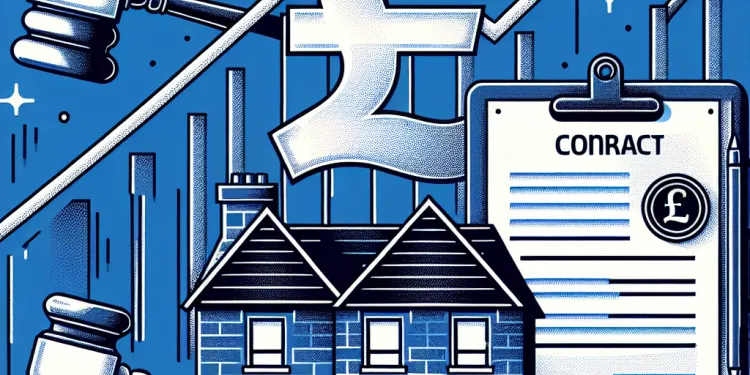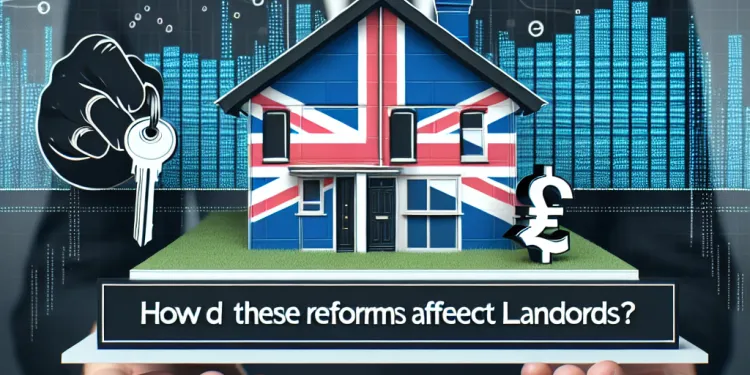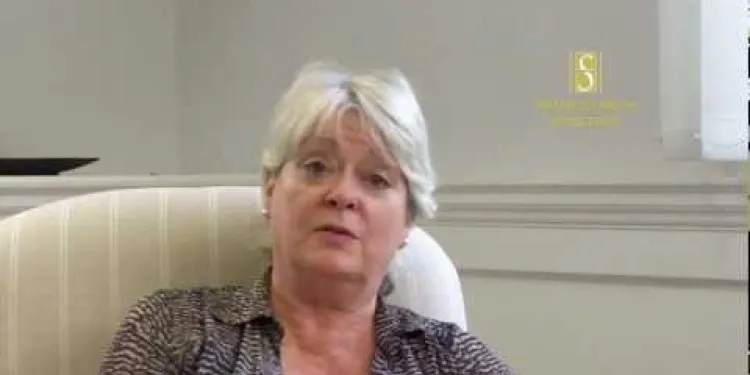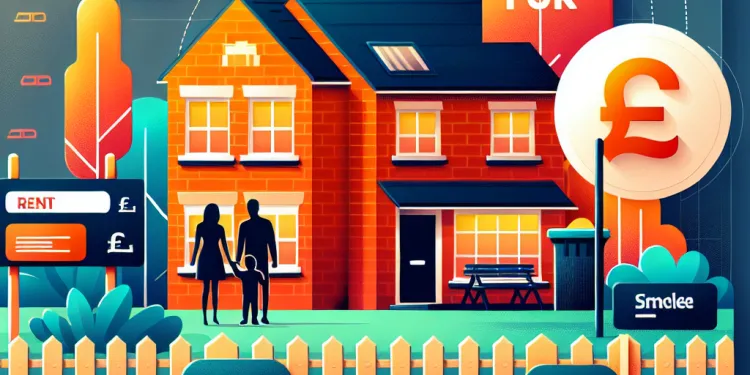
Find Help
More Items From Ergsy search
-

What new protections are included for tenants?
Relevance: 100%
-

Landlord Licensing Laws Under Review as Tenants Call for Stronger Protections
Relevance: 65%
-

What can tenants do if they are affected by the cuts?
Relevance: 56%
-

Can tenants apply for the Warm Home Discount?
Relevance: 49%
-

How are rent increases regulated under the new law?
Relevance: 49%
-

What are the new Tenancy Law Reforms in the UK in 2025?
Relevance: 48%
-

How are disputes between landlords and tenants handled?
Relevance: 47%
-

Understanding Parental Rights in Light of New UK Child Protection Legislation
Relevance: 44%
-

How can I protect myself from new COVID-19 variants?
Relevance: 43%
-

How will the proposed cuts impact tenants?
Relevance: 41%
-

How do the reforms affect housing benefit tenants?
Relevance: 39%
-

How does the reform impact renting costs?
Relevance: 35%
-

Are there changes to the eviction process?
Relevance: 34%
-

Do vaccines protect against the Stratus variant?
Relevance: 34%
-

How do these reforms affect landlords?
Relevance: 34%
-

Court of Protection
Relevance: 33%
-

Should I be worried about new variants?
Relevance: 33%
-

Understanding the New Domestic Abuse Laws in the UK
Relevance: 33%
-

Are there new guidelines for property maintenance?
Relevance: 33%
-

Can new variants cause reinfection?
Relevance: 32%
-
New Covid Variant Strains
Relevance: 32%
-

Can a landlord evict me for complaining about property conditions?
Relevance: 31%
-

Is my ISA protected if my provider goes bankrupt?
Relevance: 31%
-

Are children more affected by new variants of COVID?
Relevance: 31%
-

Do vaccines work against new COVID-19 variants?
Relevance: 30%
-

Are new COVID-19 variants more dangerous?
Relevance: 30%
-

Understanding the Impact of the UK's New Domestic Abuse Legislation
Relevance: 30%
-

Are new variants more transmissible?
Relevance: 29%
-

What is the Pension Protection Fund?
Relevance: 29%
-

Are there reforms concerning subletting?
Relevance: 29%
-

Are there privacy protections for my medical records?
Relevance: 28%
-

How can I protect myself from Covid-19 variants?
Relevance: 28%
-

Do existing UK laws sufficiently protect under 16s on social media?
Relevance: 28%
-

Can I appeal a court's eviction decision?
Relevance: 28%
-

What is the new Domestic Abuse Act in the UK?
Relevance: 28%
-

Are there any new mosquito-borne diseases emerging in the UK in 2025?
Relevance: 28%
-

How are landlord-tenant issues resolved in property litigation?
Relevance: 27%
-

What changes affect pet policies in rented homes?
Relevance: 27%
-

UK Government Announces New Energy Bill Support Amid Rising Costs
Relevance: 27%
-

Who can be considered a domestic abuse perpetrator under the new law?
Relevance: 27%
Introduction
Tenant protections in the UK have been a growing area of focus in recent years, with several new legislations and reforms aimed at providing renters with more security and fair treatment. This drive for tenant-friendly policies is largely in response to the rising number of individuals and families renting their homes, as well as addressing historical power imbalances between landlords and tenants.
Renters (Reform) Bill
One of the most significant legislative initiatives impacting UK renters is the Renters (Reform) Bill. This bill aims to bolster tenant rights and enhance the quality of rental accommodation. One of the notable changes proposed is the abolition of Section 21 'no-fault' evictions, which currently allow landlords to evict tenants without providing a reason. The removal of Section 21 is intended to offer tenants greater housing stability and security.
Lifetime Deposits
The concept of 'lifetime deposits' is another important feature in new tenant protections. This initiative seeks to simplify the moving process for renters by allowing them to transfer their deposit from one property to another seamlessly. It is designed to ease the financial burden on tenants who often struggle to cover the upfront costs of moving to a new rental while waiting for their previous deposit to be returned.
Improvements in Property Conditions
Part of the ongoing reforms also focuses on improving the quality of rental housing. The legislation proposes stronger enforcement of standards through local councils, ensuring properties are safe, secure, and meet acceptable living standards. This includes the introduction of a legally binding decent homes standard for the private rented sector.
Strengthening Tenant Voices
Empowering tenants and ensuring their voices are heard is an essential component of the new protections. Measures are being put in place to establish reformatted and more accessible tribunals where tenants can appeal unfair practices or unsafe living conditions. Additionally, proposals have been made to strengthen and amplify the role of tenant unions and advocacy groups in policy formulation and dispute resolution.
Restrictions on Rent Increases
Another key aspect of new tenant protections includes putting in place measures to safeguard against unreasonable rent increases. There are proposals to ensure that any rent increase is subject to proper notice periods and caps, preventing tenants from facing sudden and unaffordable hikes in their rent.
Conclusion
As legislation continues to evolve, these new protections collectively aim to create a fairer, more manageable rental market in the UK. The reforms are intended to balance the landlord-tenant relationship, ensuring renters have a secure, stable, and quality living environment while clarifying the rights and responsibilities of landlords. These changes signal a shift towards a more equitable housing sector, reflecting the needs and demands of modern tenants.
Introduction
In the UK, there are new rules to help people who rent homes. These rules are to make sure renters are treated well and feel safe. More people are renting homes now, so it's important to make sure they are protected and not taken advantage of by landlords.
Renters (Reform) Bill
The Renters (Reform) Bill is a new rule for people who rent homes in the UK. This rule helps renters by giving them more rights and makes rental homes better. One big change is stopping "no-fault" evictions, which let landlords make renters leave for no reason. Without these evictions, renters can feel safer in their homes.
Lifetime Deposits
Lifetime deposits are a new idea to help renters. It lets people move their deposit from one home to another easily. This helps renters with the cost of moving because they don't have to wait a long time to get their old deposit back.
Improvements in Property Conditions
New rules also want to make sure rental homes are safe and nice to live in. Local councils will check homes to meet these rules. Homes need to be safe, strong, and nice to live in. There will be a new standard that all rental homes have to meet.
Strengthening Tenant Voices
It is important that renters can speak up if things are not fair. New ways will help renters if they have problems. Renters can go to special meetings to talk about unfair things or problems with their home. Renters will also get more help from groups that support them.
Restrictions on Rent Increases
New rules will help stop rents from going up too much, too fast. Rent increases will have to be fair and follow certain rules. This will help renters avoid surprise price jumps in their rent.
Conclusion
The new rules aim to make renting fairer for everyone in the UK. It helps renters feel safe and happy in their homes. The changes give both renters and landlords clear rights and rules to follow. These updates make sure that renting is fair and works well for everyone today.
Frequently Asked Questions
What new notice requirements are there for rent increases?
Tenants now receive more extended notice periods before rent increases can take effect, often requiring 60 to 90 days' notice depending on the jurisdiction.
Are there limits on rent increases?
Yes, some areas have implemented rent control measures that limit the amount landlords can increase rent each year.
What protections exist against eviction?
New laws may require landlords to provide just cause for eviction and may extend notice periods or prohibit evictions during certain times, such as extreme weather periods.
Can landlords charge late fees?
Limits are often placed on late fees, capping them at a percentage of monthly rent or requiring a grace period before they can be charged.
Are security deposits protected under new regulations?
Yes, there are often limits on the amount that can be charged for security deposits and specific guidelines on how they must be returned to tenants.
Do tenants have the right to withhold rent for necessary repairs?
In many jurisdictions, tenants can withhold rent if landlords do not make necessary repairs, provided specific procedures are followed.
Is there protection against retaliation from landlords?
Yes, laws often prohibit landlords from retaliating against tenants who exercise their rights, such as reporting violations or joining tenant organizations.
How have maintenance and repair obligations been defined?
New regulations often provide clearer definitions of landlords' obligations to maintain properties and address repairs promptly.
What rights do tenants have regarding privacy and entry notices?
Laws generally require landlords to provide advance notice before entering a tenant's dwelling, except in emergencies.
Are there new protections specific to COVID-19 impacts?
Many regions implemented temporary eviction moratoriums and rental assistance programs to protect tenants during the pandemic.
What rules govern the return of security deposits?
Landlords often must return security deposits within a specified period after tenancy ends, with an itemized list if deductions are made.
Have there been changes to lease termination notice requirements?
New laws may extend the notice period required for either party to terminate a lease agreement, allowing for more stability.
Do tenants have protections against forced entry by landlords?
Yes, landlords typically cannot forcibly enter or change locks without following legal procedures, ensuring tenant privacy and safety.
What assistance is available for tenants facing financial hardship?
Many areas provide rental assistance programs and mediation services to help tenants navigate financial difficulties and avoid eviction.
How are discriminatory practices addressed in housing?
Anti-discrimination laws prohibit landlords from denying housing based on race, gender, disability, and other protected classes.
Are there protections for tenants in foreclosed properties?
Tenants in foreclosed properties often have the right to remain for a specified period or until lease expiration, whichever is longer.
What are the rules about rent collection and payment methods?
Landlords must often accommodate reasonable requests for alternative rent payment methods and cannot penalize tenants for such requests.
Can tenants negotiate lease terms under new protections?
Tenants have more leverage to negotiate lease terms, especially concerning renewal, repairs, and allowable rent increases.
What must landlords disclose about the condition of the property?
Landlords are commonly required to disclose known issues with the property that could affect tenancy, ensuring informed decisions.
Have tenant unionizing rights been expanded?
Yes, tenant union and organizing rights are increasingly protected, allowing tenants to collectively address and negotiate housing concerns.
What are the new rules for telling people about rent going up?
People who rent a home now get more time to know about rent going up. This means, before the rent goes up, you should be told about it 60 to 90 days before. The rules may be different in each area.
To help understand this, you can:
- Ask someone you trust to explain it to you.
- Use apps that read the text out loud for you.
- Draw pictures or use sticky notes to remember important points.
Can my rent go up a lot?
Yes, some places have rules to stop rent going up too much. These rules say how much landlords can raise the rent each year.
What rules stop people from losing their homes?
New rules might make landlords give a good reason for asking tenants to leave. These rules might also give tenants more time before they have to move out or stop evictions in bad weather.
Can landlords ask for extra money if you pay rent late?
There are often rules about late fees. These rules say that late fees can only be a small part of the monthly rent. They also say you have to wait a little while before charging late fees.
Are security deposits safe with new rules?
Yes, there are rules about how much money can be asked for a security deposit. There are also rules about how the money must be given back to the people who rent the place.
Can renters stop paying rent if something needs fixing?
Sometimes, things in a home break. Renters might think about not paying rent if repairs are needed.
Talk to the landlord: It is important to tell the landlord about the problem. They might not know something is broken.
Write it down: You can write a letter to explain what is broken. This helps keep track of the problem.
Look at the renter's agreement: Check the renter's agreement to see what it says about repairs and rent.
Get help: If it is hard to talk to the landlord, ask a support service for help. They can give advice on what to do.
In many places, renters can stop paying rent if the landlord does not fix important things in the home. But they need to follow certain steps.
Are there rules to stop landlords from being unfair?
Yes, there are rules that stop landlords from being mean to renters who stand up for themselves. This can happen if renters tell on landlords for breaking rules or if they join a renters' group.
What do we mean by taking care of things and fixing them when they break?
Tip: If you find words you don't know, you can use a picture dictionary to help you understand!
New rules help landlords know what they need to do to keep homes in good shape. They also tell landlords to fix things quickly when they break.
What are the rules about privacy for people renting a home?
If you rent a home, you have rules for privacy. This means your landlord or someone who owns the home can’t just come in anytime. They have to tell you before they want to visit.
Here are some tips to help:
- Entry Notice: The landlord must let you know before they come to see the home. They should tell you at least 24 hours before visiting.
- Your Space: Your home is your space. You have the right to keep it private.
- Ask for Help: If you have questions, ask a friend or someone you trust.
Landlords usually have to tell tenants before coming in. But if it is an emergency, they do not have to tell them first.
Are there new rules because of COVID-19?
Many places stopped evictions for a short time and gave money help for rent to keep people in their homes during the virus outbreak.
What are the rules for getting back my security deposit?
Here is some simple information about getting your security deposit back:
- A security deposit is money you give a landlord when you move into a new place. It's like a safety net.
- You can get this money back when you move out if you follow the rules.
- Make sure to clean the place and fix anything you broke.
- Ask your landlord for the deposit back after you move out.
If you need help, ask someone you trust to help you understand the steps. You can also use a calendar to keep track of important days or take photos of the place before you move out to show what it looks like.
A landlord is someone you rent a home from. When you move out, they usually have to give back your security deposit. This is the money you gave them at the start in case things get broken.
They have a certain amount of time to give this money back to you. If they take any money out for damage, they need to show you a list of what they took it for.
It can help to use a calendar or reminder app to keep track of when you should get your money back.
Have the rules for ending a lease changed?
New rules might change how long you have to tell someone before stopping a lease. This gives more time and makes things more stable.
Can my landlord come into my home without asking?
Landlords cannot just come into your home or change the locks whenever they want. They have to follow the law. This keeps you and your things safe.
What help can renters get if they don't have enough money?
Many places have programs to help people pay their rent. They also have people who can help talk to landlords so people don't lose their homes.
How do we stop unfair treatment in housing?
People should be treated fairly when finding a place to live. Here are some ways to stop unfair treatment in housing:
- Follow the rules: There are laws to make sure everyone is treated the same when looking for a home.
- Tell someone: If someone is treated unfairly, they can talk to a person who can help, like a lawyer or a housing counselor.
- Learn more: Knowing your rights can help stop unfair treatment. There are websites and books that can help.
Tools to help:
- Read a guide: Look for simple guides about your housing rights.
- Ask for help: Sometimes a friend or family member can help read through complicated information.
There are rules that say landlords cannot say no to someone who wants to rent a house because of their race, gender, or disability.
Are there rules to help renters if the property is taken by the bank?
If you rent a home and the bank takes it back, there are rules to help you. These rules say how long you can stay and if you need to move out. You can ask for help from a friend, a family member, or a local support group.
You can also use tools like simple apps or read with someone to understand better.
If you rent a home and the owner loses the house, you might be able to stay there for a while. You can usually stay until the time the owner said you could, or until your rental agreement ends, whichever one takes more time.
If you need help understanding this, you can ask a friend or family member. You can also use tools like reading apps or watch videos to learn more.
What are the rules for paying and collecting rent?
Landlords should let tenants pay rent in a different way if needed. Landlords cannot punish tenants for asking to pay differently.
Can people who rent a place talk about changing the rules of their rental agreement with the new protections?
People who rent a home can ask to change their rental agreement. This can include things like staying longer, fixing things, and how much the rent can go up.
What do landlords need to tell about the condition of the house or apartment?
Landlords need to let people know about any problems with the house or apartment. This can mean things like leaks, broken windows, or old electrical wires. They must be honest about these issues.
If you find reading hard, ask someone to help you with reading or use read-aloud tools to listen to the information.
Landlords must tell you about problems with the house. This helps you decide if you want to live there.
Do renters have more rights to form a group now?
Yes, people who rent homes have the right to join together in a group. This helps them talk about and solve problems with their homes. These rights are getting stronger to help renters.
Useful Links
This website offers general information and is not a substitute for professional advice.
Always seek guidance from qualified professionals.
If you have any medical concerns or need urgent help, contact a healthcare professional or emergency services immediately.
Some of this content was generated with AI assistance. We’ve done our best to keep it accurate, helpful, and human-friendly.
- Ergsy carfully checks the information in the videos we provide here.
- Videos shown by Youtube after a video has completed, have NOT been reviewed by ERGSY.
- To view, click the arrow in centre of video.
- Most of the videos you find here will have subtitles and/or closed captions available.
- You may need to turn these on, and choose your preferred language.
- Go to the video you'd like to watch.
- If closed captions (CC) are available, settings will be visible on the bottom right of the video player.
- To turn on Captions, click settings .
- To turn off Captions, click settings again.
More Items From Ergsy search
-

What new protections are included for tenants?
Relevance: 100%
-

Landlord Licensing Laws Under Review as Tenants Call for Stronger Protections
Relevance: 65%
-

What can tenants do if they are affected by the cuts?
Relevance: 56%
-

Can tenants apply for the Warm Home Discount?
Relevance: 49%
-

How are rent increases regulated under the new law?
Relevance: 49%
-

What are the new Tenancy Law Reforms in the UK in 2025?
Relevance: 48%
-

How are disputes between landlords and tenants handled?
Relevance: 47%
-

Understanding Parental Rights in Light of New UK Child Protection Legislation
Relevance: 44%
-

How can I protect myself from new COVID-19 variants?
Relevance: 43%
-

How will the proposed cuts impact tenants?
Relevance: 41%
-

How do the reforms affect housing benefit tenants?
Relevance: 39%
-

How does the reform impact renting costs?
Relevance: 35%
-

Are there changes to the eviction process?
Relevance: 34%
-

Do vaccines protect against the Stratus variant?
Relevance: 34%
-

How do these reforms affect landlords?
Relevance: 34%
-

Court of Protection
Relevance: 33%
-

Should I be worried about new variants?
Relevance: 33%
-

Understanding the New Domestic Abuse Laws in the UK
Relevance: 33%
-

Are there new guidelines for property maintenance?
Relevance: 33%
-

Can new variants cause reinfection?
Relevance: 32%
-
New Covid Variant Strains
Relevance: 32%
-

Can a landlord evict me for complaining about property conditions?
Relevance: 31%
-

Is my ISA protected if my provider goes bankrupt?
Relevance: 31%
-

Are children more affected by new variants of COVID?
Relevance: 31%
-

Do vaccines work against new COVID-19 variants?
Relevance: 30%
-

Are new COVID-19 variants more dangerous?
Relevance: 30%
-

Understanding the Impact of the UK's New Domestic Abuse Legislation
Relevance: 30%
-

Are new variants more transmissible?
Relevance: 29%
-

What is the Pension Protection Fund?
Relevance: 29%
-

Are there reforms concerning subletting?
Relevance: 29%
-

Are there privacy protections for my medical records?
Relevance: 28%
-

How can I protect myself from Covid-19 variants?
Relevance: 28%
-

Do existing UK laws sufficiently protect under 16s on social media?
Relevance: 28%
-

Can I appeal a court's eviction decision?
Relevance: 28%
-

What is the new Domestic Abuse Act in the UK?
Relevance: 28%
-

Are there any new mosquito-borne diseases emerging in the UK in 2025?
Relevance: 28%
-

How are landlord-tenant issues resolved in property litigation?
Relevance: 27%
-

What changes affect pet policies in rented homes?
Relevance: 27%
-

UK Government Announces New Energy Bill Support Amid Rising Costs
Relevance: 27%
-

Who can be considered a domestic abuse perpetrator under the new law?
Relevance: 27%


